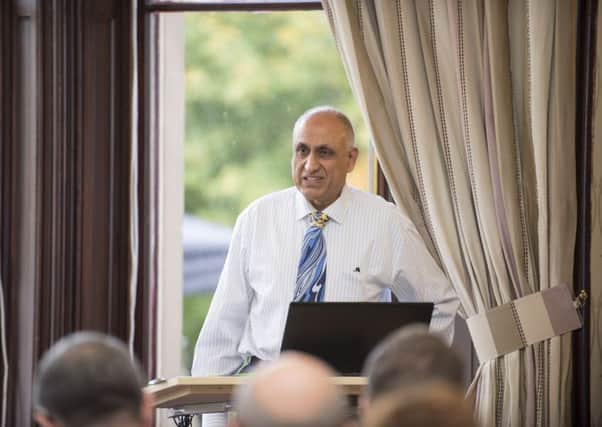Tariq Muneer: Renewable energy and better batteries will power the rollout of electric cars


There were a large number of significant competitors – computer, phones, and internet; however, the word that won the competition was ‘automobile’.
Indeed, the automobile is one of the greatest inventions of modern times. While the internet enables the swift transfer of data over large distances, the automobile transports people with speed, comfort, safety, and economy.
Advertisement
Hide AdAdvertisement
Hide AdCurrently, there are more than 1.2 billion vehicles on this planet. That figure is expected to rise to two billion by 2035. The runaway success of the automobile is due to its impressive performance – it travels more than 300 miles without refuelling the fuel tank and can attain speeds of more than 100 mph.
Automobiles are a liberating technology for people all over the world, allowing people to live, work, and play in ways that were unimaginable a century ago. Automobiles provide access to markets, to doctors, and to jobs. Nearly every car trip ends with either an economic transaction or some other benefit to our quality of life.
The kerbside and global pollution generated by combustion engine (CE) vehicles though will eventually be its undoing and the case for electric vehicles is gaining momentum.
However, e-vehicles charged by fossil-fuel electricity actually liberate more carbon in the atmosphere. The only solution therefore is to use electricity from renewable means.
To quote some figures, for each mile a medium-sized vehicle such as a Renault Megane travels, 208 grams of carbon dioxide are emitted. In contrast a similar-sized electric vehicle respectively powered by solar or wind will only produce 13 or four grams!
Since the latter figures are based on life-cycle assessment of the two respective technologies, they will, in time, drop sharply by using feedback loop, with renewable energy being used to produce renewable power plants.
UK motorists typically drive 20 miles a day and present electric vehicles may be driven 3.4 miles for each kWh that is available from the battery.
Sceptics usually raise two issues related to renewable energy power – its present small contribution to grid capacity, and its intermittency, but I would argue that these issues will become less of an obstacle.
Advertisement
Hide Ad